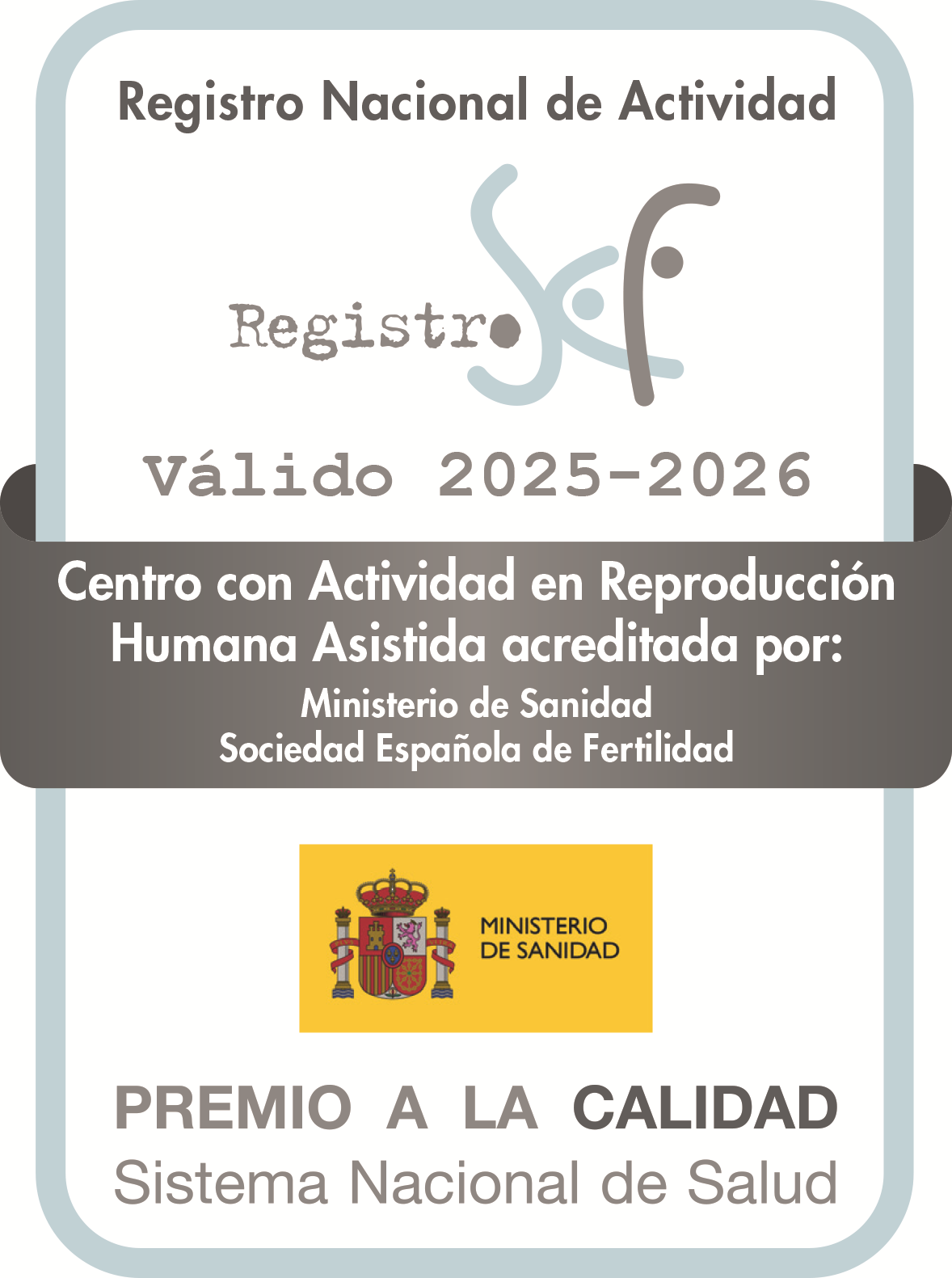Preimplantation Genetic Diagnosis
Determine the genetic analysis of the embryo allows us to ensure its future

Preimplantation Genetic Diagnosis
What is the PGD?
Preimplantation genetic diagnosis (PGD) is a diagnostic technique used as a complement to in vitro fertilization, which allows genetically analyze embryos in the initial phase of development and transfer to the uterus embryos cataloged as fit (without genetic alterations). The objective is to ensure a healthy offspring and end with the transmission of a certain pathology, chromosomal anomaly or genetic mutation.
The PGD requires an exhaustive study by our team of doctors, biologists and geneticists, as well as the establishment of an individualized diagnostic and therapeutic strategy. Next, the couple must undergo an in vitro fertilization treatment to be able to grow the embryos to the blastocyst stage, which is when we will perform the embryo biopsy.
Embryo biopsy:
A cell is extracted from each embryo to study its chromosomes. Embryos diagnosed as healthy (without chromosomal alterations) can be transferred to the uterus to obtain an evolutionary and normal gestation.
PGD allows to ensure healthy offspring
Every day there are more hereditary diseases of which we know the chromosomal alteration that originates them. These alterations can already be detected in the embryo. In the list of indications of subsidiary diseases of preimplantation genetic diagnosis, all the diseases that we can diagnose are reflected. If you are interested in obtaining information about a disease that does not appear in the following list, contact us. Our geneticists are constantly innovating and researching.
PGD is indicated when the genetic diagnosis is technically possible, its reliability is high, the chances of success are acceptable and assisted reproduction techniques are feasible.
Indications of subsidiary diseases of the PGD
It is possible to perform PGD for any genetic disease in which the gene has been characterized, independently of its autosomal dominant, autosomal recessive or X-linked inheritance pattern. Ideally, it is convenient that the responsible mutation has been identified and that the relatives of the couple have also been studied.
Up to now, PGD has been applied for the analysis of more than 160 different monogenic diseases. PGD is only indicated when the genetic diagnosis is technically possible, its reliability is high, the chances of success are acceptable and assisted reproduction techniques are feasible.
The couples indicated for the realization of a PGD are those with a high genetic risk of suffering from monogenic diseases and structural or numerical chromosomal anomalies. It is also indicated for couples coming from in vitro fertilization programs in which we detect the existence of repeat abortions and repeated implantation failures. It can also be indicated when a woman’s age is over 37 years and when the study of man’s meiosis reveals alterations.
Consult the list of monogenic diseases detectable by the PGD
Special indications of PGD
Predisposition to certain diseases
There are mutations in certain genes that predispose to the appearance of diseases in the life course. When this hereditary behavior is confirmed, the possibility of performing a PGD will avoid the appearance of the disease in the offspring.
An example of these diseases that can be avoided are familial adenomatous polyposis, neurofibromatosis and breast cancer of genetic origin. In these cases, to carry out a PGD requires the express authorization of the health authority, with a favorable report from the National Commission of Assisted Human Reproduction.
Preimplantation Genetic Diagnosis and histocompatibility (HLA)
The current law on assisted reproduction techniques includes the possibility of conducting a cycle of PGD for the determination of histocompatibility antigens (HLA-human leukocyte antigen) for therapeutic purposes for third parties.
This solution is applied when a first-degree relative, usually a child, suffers from a hematopoiesis disease that requires a bone marrow or umbilical cord cell transplant. In these cases, to carry out the PGD requires the express authorization of the sanitary authority, with previous favorable report of the National Commission of Assisted Human Reproduction.














